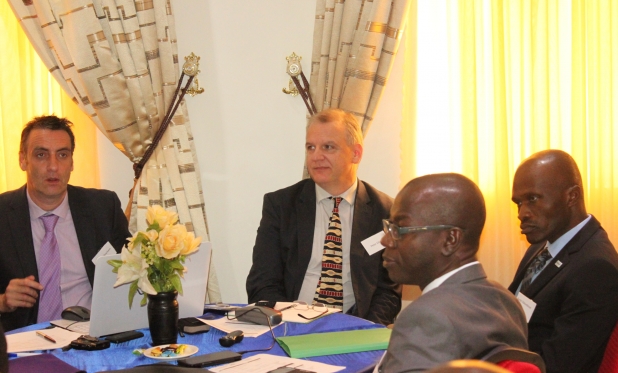1. Why did you choose to volunteer and why did the Global Fund Project in Abuja appeal?
Having been around a lot of NGO workers when I lived in Malawi, I’ve always wanted to get more involved with this sector. After leaving my job as an Executive in southern Africa’s steel industry after 20 years, it was a good time to take time out to decide what to do next. I’d heard that Abuja was a very manageable location, and the Global Fund is a top quality organization, so it was easy to say “yes” once the assignment was suggested to me.
2. As you know this is a pilot for similar GF funded projects in many other countries; do you think Nigeria was a good choice?
Nigeria is easily the best choice, it is a huge country and population (175 million) with the most malaria deaths in the world. It has a broad range of NGOs and working environments from cities to rural areas. It also has a decent enough infrastructure and plenty of highly-educated employees, for the project to be assessed on its merits, free from external limitations and disruptions.
3. It is unusual for AfID to work on a project with so many active stakeholders, what challenges does this bring? How did your previous experience prepare you for these challenges?
I’ve always worked in situations where you have to keep multiple parties, with differing needs, happy. It’s just a case of finding out what everyone wants and being transparent when conflicts arise. The particular challenge here is that the role is a combination of: mentor, social worker, policeman, and helper. Different stakeholders can want opposing things from the volunteer at the same time. Clear and regular reporting helps everyone to agree the line to take.
4. Do you feel the role of an AfID volunteer draws upon a difference set of personal than that of a typical commercial assignment?
It is very different. The volunteer has to establish their own status; define and deliver their work plan and persuade the client NGOs to buy-into their assessments and solutions. This is a very tough ask as the client NGOs have their own views and agendas and havent volunteered ‘voluntarily’ to have a volunteer, necessarily. In a commercial assignment everything is much more clearly defined.
5. Working in a development setting can be very frustrating – how did you overcome the frustrating elements of the role?
We’re with each NGO for around six weeks, long enough to have an impact, but not long enough to change the world, so you have to be philosophical when your plans don’t work out – which is often. When the client NGOs waste your time or block a line of training or information; you have to re-assess the next-best possible set of outcomes and work towards that. The best thing, however, has been that there is usually a team of three of us staying at the same hotel and talking every day about our situations and swapping ideas.
6. You worked closely with other AfID volunteering at GF partner organizations; what were the benefits of a more team based approach?
With the team we get different perspectives and can let off steam. The three of us are a surprisingly good mix of skills and personalities. Among other things this mix enabled us to put on two days of quality training for 40 of the senior finance people from the local host organisations. We also visited the others’ client NGOs where a particular skill was required. It’s hard for one person to cover the whole range of financial training needs.
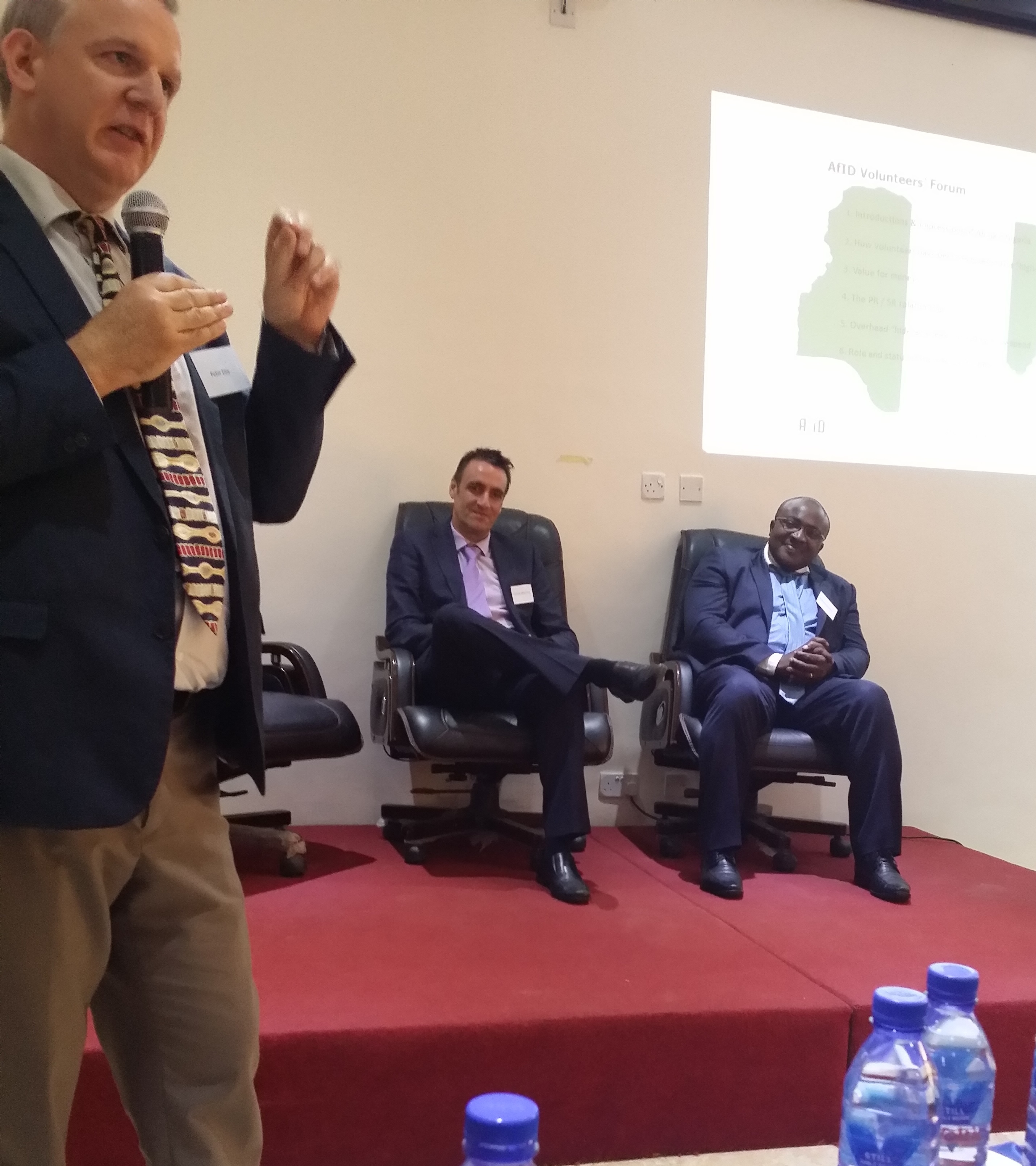 7. Commercial organizations often require clear and measurable results to prove an assignment has been successful or financially viable; do you feel this approach can work in this setting?
7. Commercial organizations often require clear and measurable results to prove an assignment has been successful or financially viable; do you feel this approach can work in this setting?The volunteer’s job is to present the best training options possible to the client NGO, giving them the tools and establishing different processes for them to work with. The success of that won’t be measurable immediately, which may be frustrating for those who are paying for the project.
I think that any success might only become apparent towards the end of the second wave of volunteers / beginning of the third. This is because the first volunteers came into an undefined situation, full of misinformation and apprehension on the part of the client NGOs; and without clear leadership from other in-country stakeholders.
Judging from Ecobank’s continuing positive attitude towards us, I would say that it can work. I think that there ought to be some headline events during every set of assignments that the corporate sponsor can “hang their hats on” and get good publicity both within their organization and without.
8. Can you give examples of how you added value on assignment?
The 2 day training seminar was the signature event for our team of three. It was very well presented and received. More than that it got everyone involved in the Global Fund’s project together in the same room.
Our aim was to get local organisations to be with each other in a neutral environment to build trust and understanding. On top of that, the Global Fund was in town and held Q&A sessions - which were great. Ecobank were also able to get their message across on banking services and solutions. Otherwise I would say that I managed to add value to one large, established NGO through a series of presentations on sustainability up to and including Board Level. These showed trustees, senior management, field project officers and all accounting staff how their issues in financial management and reporting were jeopardizing the future of the organization. It needed a voice from outside to wake them up to their situation. Now they are thoroughly sensitized, they have to decide to take the necessary steps to save themselves.
9. What in your opinion are the biggest wins from the AfID volunteers input – For a) your host partner organizations, b) Global Fund c) The global project of support that evolve from this pilot?
a. For the client NGOs the biggest wins would be:
- An ability to get their point of view across, uncensored, to the Global Fund; and to get an understanding of how they are perceived by the Global Fund;
- Exposure to the huge range of training resources and ongoing help that is available to them, to improve any and all areas of their finance operations.
- The opportunity to get free, top-quality, hands-on help in areas they choose.
b. Our role as impartial volunteers gave GF a much more honest view of the current situation. We are nicely placed to give a less biased perspective than others, especially as a group.
c. There has been a huge and varied range of feedback that we have given from our experiences. It must help make a better start-point and direction for future volunteer assignments. We have stumbled over a number of ‘agendas’ and attitudes within the client NGOs, at all levels that will need to be taken into account for the next placements.
10. This project is sponsored by Ecobank; do you think more commercial organisations should explore ways of partnering with non-profits?
Ecobank have been great for the volunteers, no-one else would have looked after our needs as well as they have. They have resources and a responsive attitude that meant we were very comfortable with them handling everything from visa renewals to setting up the logistics for the training course. A powerful corporate friend is a huge asset. They also help to keep the project ‘honest’ as they are looking for tangible outcomes and weekly reporting.
11. After so many security concerns in the region, many will be fearful of following in your footsteps. What would you say to these people – what tips would you give them?
There are no security concerns for volunteers in Abuja, it’s a lot safer than Johannesburg, where I’ve lived with my family for more than ten years.
For other locations, my tips are to talk to people who have been to the country concerned, or who live there now, and not to base a view on news stories. Ex-pat forums on the internet have also got a lot of useful information and insights.
Ultimately, when considering a location, if you think you can or you can’t – you’re probably right! It’s different for different people and the assessments are very subjective.
12. It’s not all work, work, work; what was your favourite moment outside of the office?
We went to an open-air music venue; first to arrive last to leave. There were enforced cameo appearances on the mic from us; but more so as “dance-stooges” on stage with the cool professionals. The highlight was at about 1:30am as we left, we were chased into the car park by the entire band and crew who felt we’d not thrown enough money at them during the night. All ended happily, it was just an unexpected spectacle.
13. What is next for you – has this experience changed your focus or the direction of your career (even life) in any way?
I’m hoping that the experience will assist me to get work in the not-for-profit sector, which was one aim of volunteering. More than that, it’s provided a natural break from a long period doing the same thing and allowed me to think more clearly about future options. It’s been great.
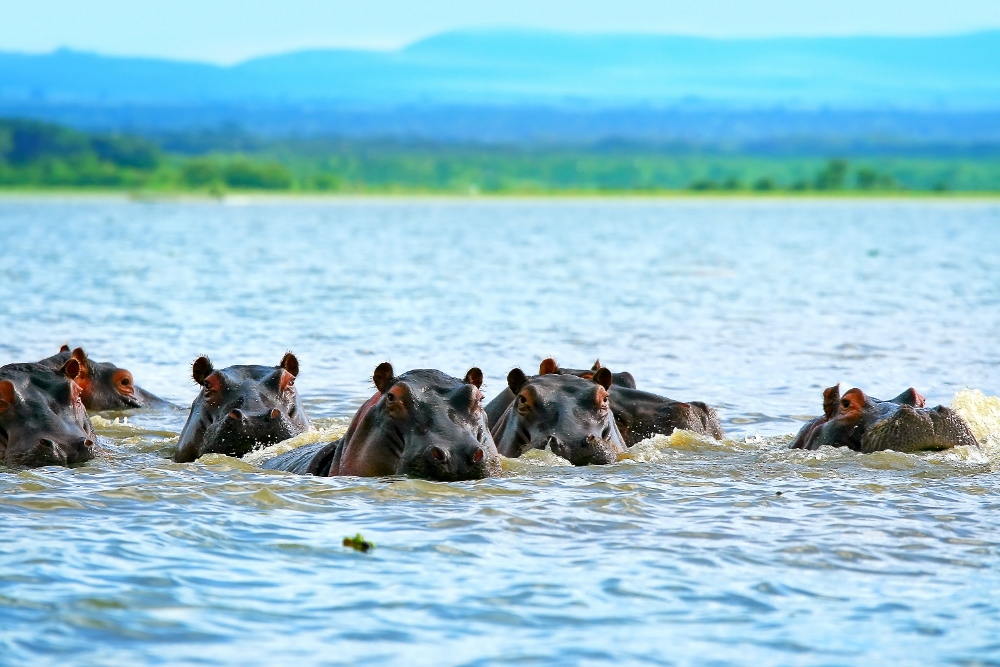

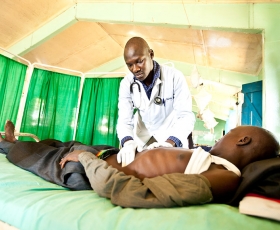
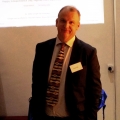 Name
Name